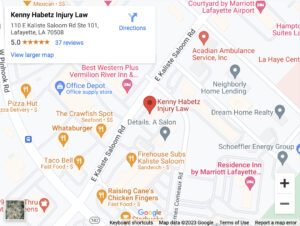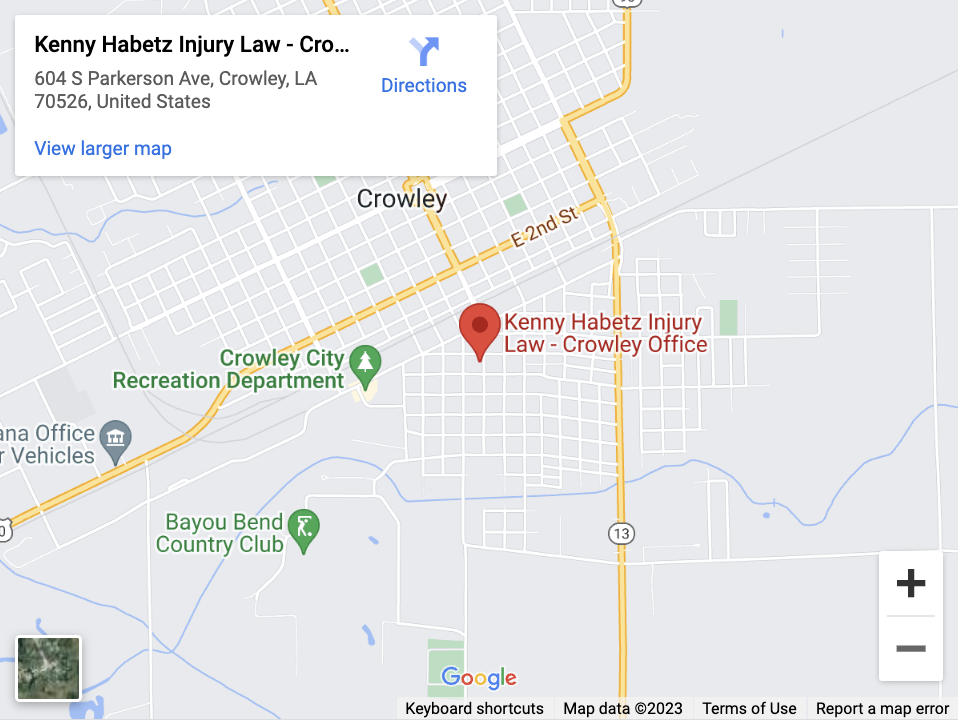
You thought you were hiring a skilled personal injury attorney to handle your case. Now, your attorney ignores you or has failed to protect your best interests. You may be wondering if you can sue a lawyer for not doing their job.
In some situations, you can sue for legal malpractice. You can also file a complaint with the Louisiana State Bar Association.
What Can I Expect From My Personal Injury Lawyer?

You have basic rights as a lawyer’s client. The Louisiana Rules of Professional Conduct explain many of these rules. Basic rights include effective communication from your attorney and ethically completing work.
An attorney has a duty to ensure they have the expertise and legal knowledge to handle your legal matter competently.
Some important rights you should expect your attorney to comply with include:
- Provide a reasonable assessment of the cost of pursuing your claim
- Provide a written retainer and fee agreement with clear terms outlining attorneys’ fees, case costs, rights, and responsibilities
- Tell you what they anticipate occurring in your case
- Keep you updated and informed about the progress of your case
- Promptly inform you of any delays, changes, or setbacks
- Provide information and analysis of the cost-benefit evaluation of settlement versus going to trial
- Permit you to make crucial decisions concerning your case, such as whether to accept a settlement offer
- Provide information for you to make educated decisions
- Prepare your case for disposition, including settlement negotiations and/or trial
Attorneys cannot guarantee an outcome in a case. If a personal injury lawyer promises you a specific sum for your injury claim, it could be an indication that you need to keep searching for an attorney.
Common Reasons Why a Client May Sue a Lawyer or File a Complaint With the Bar Association
The attorney-client relationship creates a duty for the attorney to perform legal services that are in their client’s best interest. Many of the reasons clients file legal malpractice claims are because their attorneys failed to meet their duty.
Problems that could result in suing an attorney include, but are not limited to:
- Negligence in handling your case, including failing to investigate your claim, missing deadlines, failing to file insurance claims, inadequate discovery, making errors in legal strategies, etc.
- General incompetence by taking a case that is outside of their practice areas, resulting in case mismanagement and poor legal advice
- Failing to complete and/or file paperwork with the court
- Breaching the attorney-client privilege by disclosing confidential information
- Missing court hearings and appearances
- Settling a claim without your consent or pressuring you to accept a settlement
- Failing to communicate with you about your case, including refusing to return telephone calls, emails, or text messages
- Mishandling client funds in a trust account, including transferring funds not earned
- Failing to perform a check for conflicts of interest or not informing you of a conflict
- Not filing a personal injury lawsuit before the statute of limitations expires
- Intentionally misrepresenting facts or lying to a client, and other acts of fraud
Being unhappy with the outcome your attorney achieves is not sufficient grounds to sue your lawyer. You must have evidence that your lawyer’s conduct was illegal, unethical, or negligent.
How To Sue a Lawyer for Misconduct in Louisiana?
Legal malpractice cases are complicated. You must prove the attorney committed malpractice, but you must also prove your underlying case for damages.
The first step in suing an attorney is to hire a legal malpractice lawyer. The attorney investigates your claim to determine if malpractice occurred. They can gather evidence to prove the elements of negligence, which are:
- Duty of care: The attorney must have owed you a duty of care to handle your case competently. Generally, the duty is established when the attorney takes your case.
- Breach of duty: Breach of duty is failing to provide the level of care required for the circumstances. The breach may occur due to the problems discussed above or other circumstances.
- Causation: Causation requires you to prove the attorney’s actions breached their duty of care. For example, they were negligent or intentionally committed acts that fell short of the legal standard of care.
- Damages: The damages in a legal malpractice case are based on the losses you incurred because the attorney mishandled your case. That is why you need to prove your original case within your legal malpractice case.
Damages are often equal to what you would have received had the attorney handled your case correctly.
Do You Need Help With a Personal Injury Case?
If you have questions about a personal injury or accident claim, consider reaching out for a free consultation with an experienced attorney. Our skilled personal injury lawyers at Kenny Habetz Injury Law can provide guidance and support for a wide range of accident-related legal matters. Contact us today at (337) 399-9000 to schedule a free consultation.


